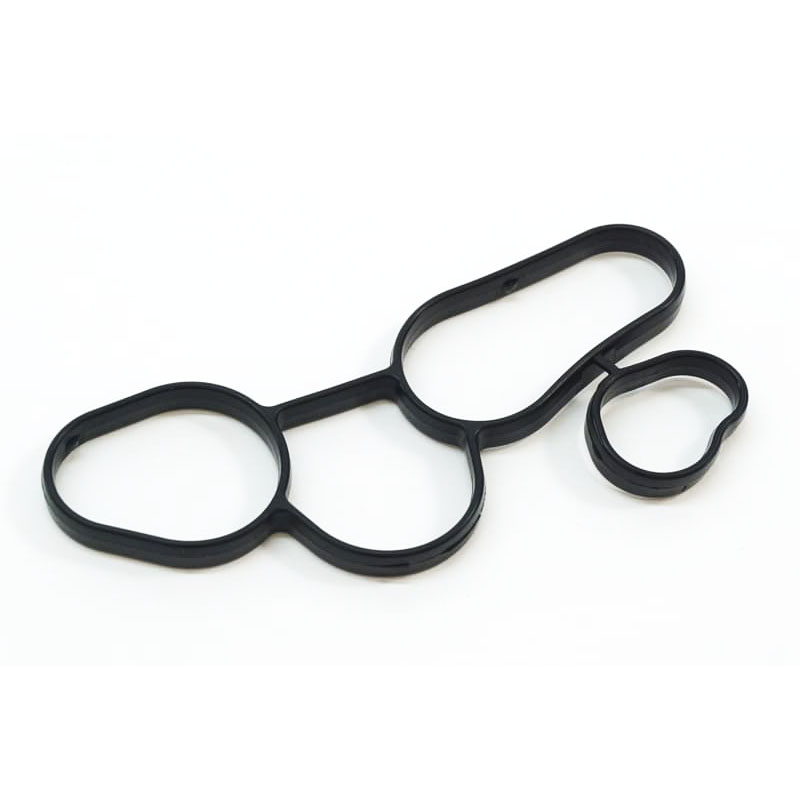flange oil seal
Understanding the Flange Oil Seal Function, Applications, and Importance
The flange oil seal is a critical component in various mechanical systems, designed primarily to prevent the leakage of lubricants and fluids from rotating shafts. These seals play a vital role in ensuring the efficiency and longevity of machinery. In this article, we will delve into the function, applications, and importance of flange oil seals in modern engineering.
Function of Flange Oil Seals
At its core, a flange oil seal is designed to create a barrier between the rotating and stationary parts of a machine. It is typically installed at the junction of a spinning shaft and a stationary housing to prevent oil or other lubricants from leaking out. The seal works by using a flexible lip that conforms to the shaft, maintaining a tight seal while allowing for the necessary movement.
Flange oil seals can be made from various materials, including rubber, polymer, and metal. The choice of material often depends on the operating environment, such as temperature, pressure, and the type of fluids involved. Additionally, some seals may include spring mechanisms to enhance their sealing capabilities by applying consistent pressure against the shaft.
Applications of Flange Oil Seals
Flange oil seals are utilized in a vast array of applications across different industries. They are commonly found in automotive systems, such as engines, transmissions, and differentials. In these applications, they ensure that lubricants remain contained while preventing dirt or contaminants from entering the system.
flange oil seal

In industrial machinery, flange oil seals are equally important
. They protect hydraulic systems, compressors, and pumps, allowing for smooth operations without the risk of fluid loss. Additionally, flange oil seals are prominent in household appliances, including washing machines and refrigerators, where they help maintain performance and efficiency.Importance of Flange Oil Seals
The importance of flange oil seals cannot be overstated. Without these seals, machinery would suffer from significant fluid leaks, leading to reduced efficiency, increased wear and tear, and potential catastrophic failures. In automotive applications, for instance, oil leaks can result in insufficient lubrication, causing engine damage and reducing the vehicle's lifespan.
Moreover, flange oil seals contribute to safety. Fluid leaks can create hazardous situations, especially in heavy machinery or industrial environments where flammable or toxic substances are present. By providing a reliable seal, these components help mitigate risks associated with fluid leaks, protecting both personnel and equipment.
Furthermore, using flange oil seals can enhance the environmental sustainability of operations. By preventing leaks, businesses can reduce waste and minimize the negative impact on the environment. This aligns with the growing emphasis on eco-friendly practices across various industries.
Conclusion
In summary, flange oil seals are essential components that play a pivotal role in the functioning of modern machinery. Their ability to prevent fluid leaks not only ensures optimal performance but also contributes to safety and environmental sustainability. As technology continues to evolve, the design and materials used in flange oil seals will likely advance, further enhancing their effectiveness in various applications. Understanding and maintaining these seals is crucial for anyone involved in equipment management, ensuring that systems operate smoothly and efficiently over time.
-
The Ultimate Guide to Boat Propeller Bearings and Trailer Wheel Bearings
News Jul.31,2025
-
The Essential Guide to Marine Bearings and Boat Trailer Wheel Bearings
News Jul.31,2025
-
The Complete Guide to Heavy Duty Seals: Protecting Doors and Spaces Efficiently
News Jul.31,2025
-
Essential Guide to Marine Shaft Bearings and Boat Trailer Axle Bearings
News Jul.31,2025
-
Comprehensive Guide to Marine and Trailer Bearings for Safe Boating and Transport
News Jul.31,2025
-
Comprehensive Guide to Automotive Oil Seals: Protecting Your Engine and Shafts
News Jul.31,2025
-
Understanding Automotive Oil Seals: Essential Components for Engine and Shaft Protection
News Jul.30,2025
Products categories















